Pour que je voie une dernière fois
les bien aimés qui m’entourent,
alors que doucement mes mains se libèrent
des liens qui m’attachent à la vie
André Bühlmann, 2017
Hommage de Christian et Pierre.
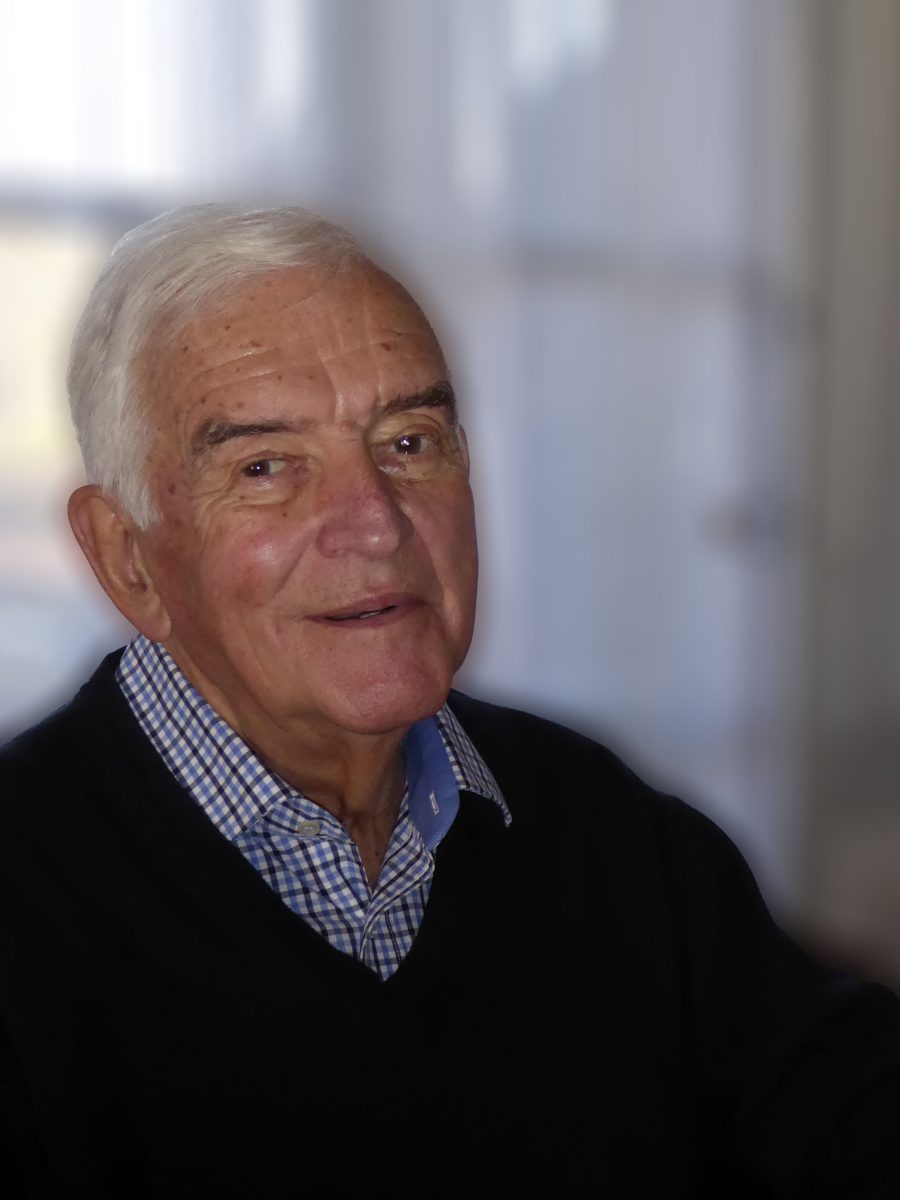
Pour que je voie une dernière fois
les bien aimés qui m’entourent,
alors que doucement mes mains se libèrent
des liens qui m’attachent à la vie
André Bühlmann, 2017
Hommage de Christian et Pierre.



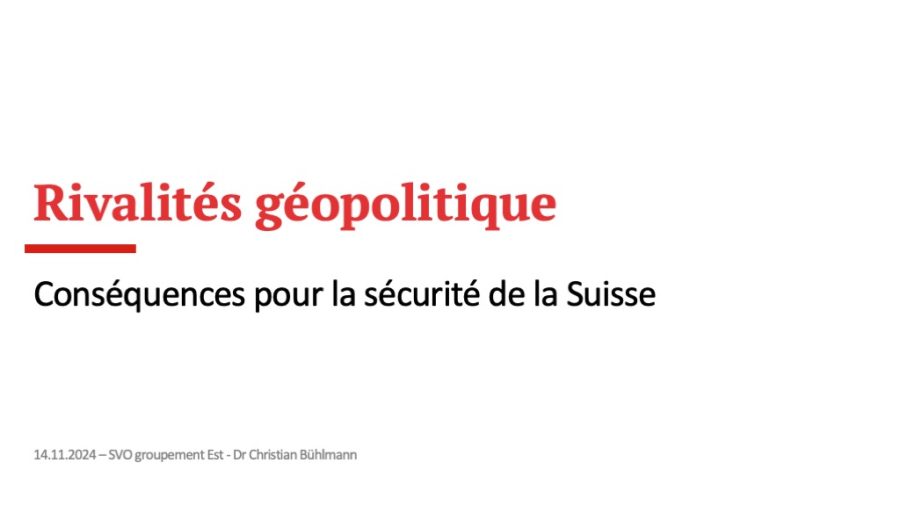

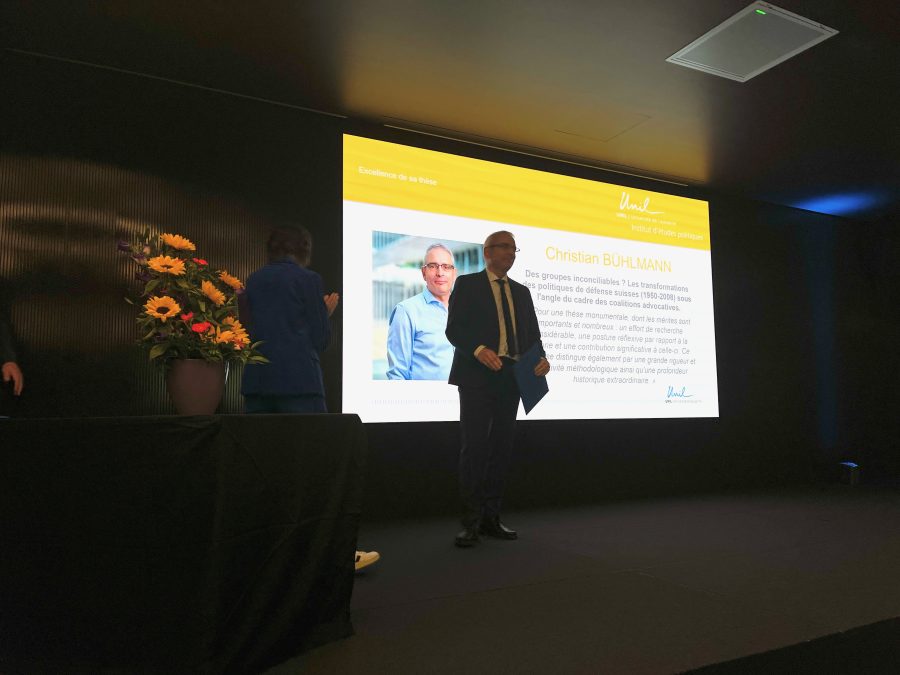
Jeudi 19 septembre 2024, dans le cadre de la Cérémonie d’ouverture des cours de l’année académique 2024-2025, la Direction de l’Université de Lausanne m’a décerné un prix de Faculté pour l’excellence de ma thèse Acteurs et transformations des politiques de défense militaire suisses (1948–2008) sous l’angle du cadre des coalitions advocatives. J’en suis extrêmement honoré!
Le prix récompense
… une thèse monumentale, dont les mérites sont importants et nombreux: un effort de recherche considérable, une posture réflexive par rapport à la théorie et une contribution significative à celle-ci. Ce travail se distingue également par une grande rigueur et créativité méthodologique ainsi qu’une profondeur historique extraordinaire.
![[REPOST] – The Economy of Trust Foundation had the pleasure of welcoming the Ambassador of the Republic of Indonesia to Switzerland, H.E. Ambassador Swajaya Ngurah, and his team members [REPOST] – The Economy of Trust Foundation had the pleasure of welcoming the Ambassador of the Republic of Indonesia to Switzerland, H.E. Ambassador Swajaya Ngurah, and his team members](https://christianbuehlmann.com/wp-content/uploads/2024/09/1724935139658-900x675.jpeg)
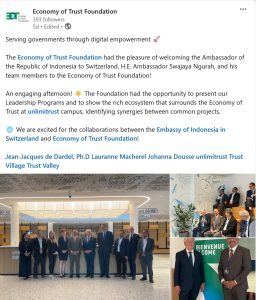
Serving governments through digital empowerment 🚀
The Economy of Trust Foundation had the pleasure of welcoming the Ambassador of the Republic of Indonesia to Switzerland, H.E. Ambassador Swajaya Ngurah, and his team members to the Economy of Trust Foundation!
An engaging afternoon! 🌟 The Foundation had the opportunity to present our Leadership Programs and to show the rich ecosystem that surrounds the Economy of Trust at unlimitrust campus, identifying synergies between common projects.
🌐 We are excited for the collaborations between the Embassy of Indonesia in Switzerland and Economy of Trust Foundation!
Jean-Jacques de Dardel, Ph.D Lauranne Macherel Johanna Dousse unlimitrust Trust Village Trust Valley

Essayé d’observer les aurores boréales le samedi 11 mai depuis le Dentenberg. Je n’ai rien vu à l’œil nu (si ce n’est quelques chauve-souris, des chevreuils et des renardeaux). Sur les photos, en revanche on observe quelques couleurs inhabituelles dans le ciel. Une belle soirée de printemps.



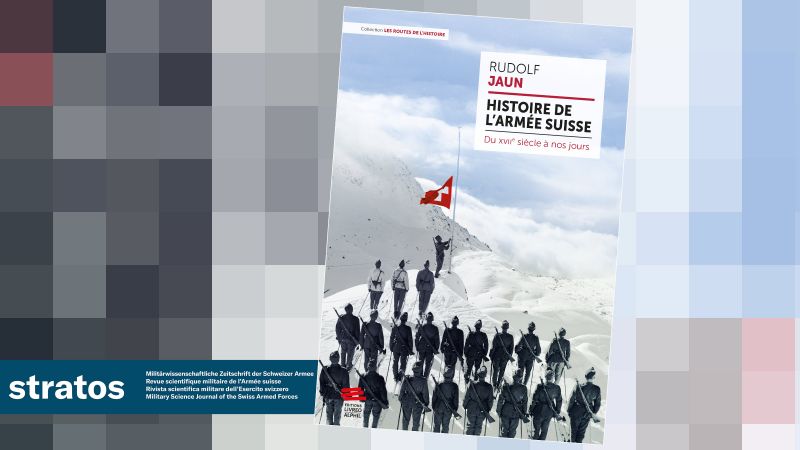
Christian Bühlmann (2024) « Histoire de l’armée suisse – Du XVIIe siècle à nos jours », stratos digital #79, recension de Jaun, R. (2023). Histoire de l’armée suisse: Du XVIIe siècle à nos jours. Neuchâtel, Livreo-Alphil. 560 pages, 67 illustrations
En Suisse, le fait militaire (das Militär) influence directement ou indirectement une grande partie de la population. En conséquence, cette thématique fait l’objet de débats publics récurrents. Paradoxalement, depuis les années septante, la politique de défense militaire est devenue un objet de recherche académique stigmatisé. Peter Braun (2006, 23) soulignait en particulier l’indifférence des historiennes et des historiens pour l’armée suisse.
En 2019, Rudolf Jaun, ancien professeur titulaire d’histoire moderne et d’histoire militaire au département d’histoire de l’Université de Zurich, comblait une lacune pour le public alémanique avec sa Geschichte der Schweizer Armee : vom 17. Jahrhundert bis in die Gegenwart (Jaun 2019). Quatre ans après, les éditions Alphil en ont publié la traduction française, Histoire de l’armée suisse. Du XVIIe siècle à nos jours (Jaun 2023a). Le livre est en tous
points conforme à la version allemande dont il reprend même la couverture.
Ce compte-rendu décrit d’abord la structure de l’ouvrage, puis sa méthodologie, son importance et conclut sur sa pertinence pour les lectrices et lecteurs potentiels.
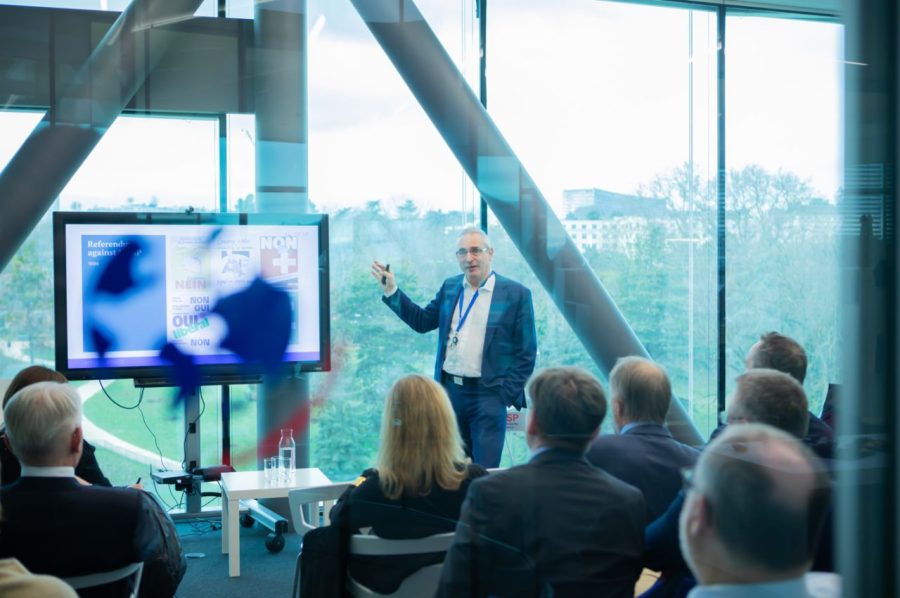
I had the pleasure to present International Geneva and the GCSP to participants from the Strategic Leadership Course organized by the Austrian National Defence Academy
Last Wednesday, the Strategic Leadership Course organized by the Austrian National Defence Academy #Vienna visited the GCSP in the context of their study trip to #Geneva. More than 40 participants, from the Austrian public and private sector, spent an insightful day filled with impactful discussions under the leadership of Lieutenant General (LTG) Erich Csitkovits, commandant of the Academy.
This visit allowed for an engaged and fruitful bilateral session between Ambassador Greminger and LTG Csitkovits, fostering stronger relations and collaboration.
The participants were informed about the different facets of the GCSP activities:🔎 Colonel (GS) Dr Christian Bühlmann opened the event with an inspiring presentation on International Geneva and GCSP’s role.🔎 Dr Jean-Marc Rickli focused on the « Security and geopolitical implications of emerging technologies, » generating fascinating discussions.🔎 Ambassador Thomas Greminger shared profound insights comparing Austrian and Swiss foreign and security policies.
Lecturers and participants contributed to making this visit a success! The participants’ active engagement and thoughtful questions added immense value to the conversations.
« Let’s continue building bridges and fostering dialogue! » – Austrian participant.

I had the pleasure to attend virtually to the opening of the 28th edition of the 28th edition of the European Security Course (ESC).
The 28th edition of the European Security Course is underway! 🎆
Since 1997, the European Security Course (ESC) has been deepening #security professionals’ understanding of the security policy #challenges that impact Europe. We were delighted to kick-off the ESC 2024 edition on Monday with our 23 fantastic participants, hailing from 22 different countries. 🌍
Learn more about our Advanced Courses: https://bit.ly/2N42509
https://boffosocko.com/2024/01/18/note-taking-and-knowledge-management-resources-for-students/
Chavigny, Paul Marie Victor. Organisation du travail intellectuel, recettes pratiques à l’usage des étudiants de toutes les facultés et de tous les travailleurs. Paris: Delagrave, 1918, https://gallica.bnf.fr/ark:/12148/bpt6k3353544h, is available as pdf under an open access policy on the website of the Bibliothèque nationale de France (in French, naturellement).
![]()
I have attended the Partnership for Peace Consortium two-day conference at the Eibsee Hotel near Garmisch – Partenkirchen. Interesting meetings and insight on the future of defense and security education.
Continue reading
![]()
On Tuesday 12 December, the GCSP had the pleasure of hosting a group of participants from the Master in European and International Governance – MEIG Programme.
GCSP experts were happy to provide an overview of some of our activities, starting with an introduction session on #InternationalGeneva by Col (GS) Dr Christian Bühlmann. Some of the key global issues discussed included #Environment and Security, presented by our Head of Human Security Ms Anna Brach, and Artificial Intelligence #AI and its implications on the sphere of International Security, presented by Project Officer Mr Federico Mantellassi.
Many thanks to #MEIG for your visit and for your interest!
![]()
![]()
![]()
Le 23 novembre 2023 s’est déroulé, à l’invitation des éditions Alphil, du Château de Morges et de ses musées, le vernissage du récent ouvrage du Professeur Rudolf Jaun, Histoire de l’armée suisse. Du XVIIe siècle à nos jours. Sous la conduite du commandant de corps (lib.) Dominique Andrey, président de l’Association suisse d’histoire et de sciences militaires (ASHSM), plusieurs personnalités sont intervenues devant une trentaine de participants pour éclairer des facettes de la rédaction du livre, de son édition et de sa traduction.
![[REPOST] – General the Lord Richards of Herstmonceux – McKay Interview [REPOST] – General the Lord Richards of Herstmonceux – McKay Interview](https://christianbuehlmann.com/wp-content/uploads/2023/10/1697387388388.jpg)
Michael A. McKay
Were Zelenskyy to take counsel from Clausewitz and Sun Tzu, what do you think they would say to him? Just one of the questions I put to the UK’s former Chief of the Defence Staff, General Sir David Richards on #themckayinterview, broadcasting tomorrow on World Radio Switzerland Switzerland at 8pm #Geneva time. Geneva Centre for Security Policy Thomas Greminger Dr Christian Bühlmann Thomas Suessli The British-Swiss Chamber of Commerce
General the Lord Richards of Herstmonceux – McKay Interview worldradio.ch • Lecture de 1 min